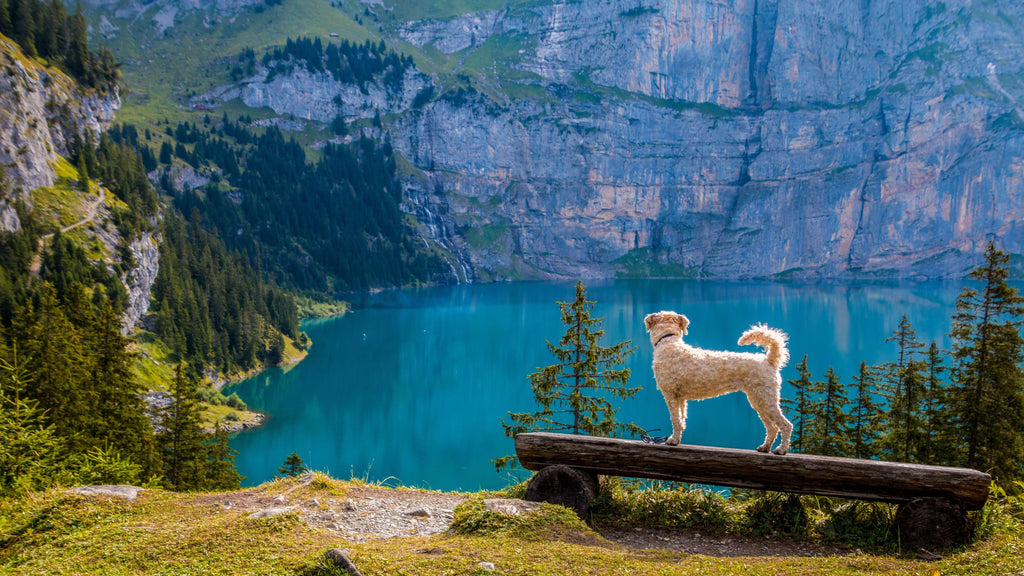
The Comprehensive Guide to Dog Potty Training
If you just got a puppy, then you're probably overwhelmed with joy and excitement over your new furry friend. But, you're also probably worried about one major issue: Potty training your new pup. Potty training a new dog is an extensive process. But, it's important that you potty train your dog early so they don't develop bad habits that are hard to break later. Check out this guide to learn everything you need to know about dog potty training.
Teach Your Puppy the Potty Cue
First things first, you need to train your puppy to signal to you when they need to be let outside. To teach your puppy the potty cue, have them sit by the back door. When your puppy barks, open the door and let them out. If you'd rather not train your puppy to bark, place a bell by the door that they can ring. Once your puppy rings the bell, immediately take them outside. Also, keep in mind that the potty cue is just for going potty. If you allow your puppy to spend too much time playing outside, they'll start to associate the bell or bark with playtime. Also, if you ever need to change the cue because your puppy is barking too much, you can teach them a new cue like sitting by the door.
Determine a Set Potty Spot
Once your puppy signals the potty cue, put them on a leash and walk them over to the designated spot in which you'd like them to pee. Wait in this spot as your pet relieves themselves, and reward them with verbal praise and treats. This way, they'll see peeing outside as a positive experience. If your pup doesn’t urinate within a few minutes of being in the potty spot, take them back inside. The goal of training is to associate an action (ringing the bell) with a response (potty break in a specific location). 
Dealing With Accidents
So, what do you do when your puppy has an accident? No matter how well you train your puppy, accidents happen and it's not a big deal. To get things back on track, it's important to figure out the source of the accident and to reinforce positive behavior. So, keep an eye out for what stresses your pet and what triggers their accidents. To limit accidents, make sure you keep your puppy on a consistent schedule. If you're going out for a long time, take your puppy on a long walk so they have plenty of opportunities to relieve their bladder beforehand. When accidents happen, here's what you should do:
- If you find your puppy in the act, interrupt them
- Make a startling noise (but be careful not to scare them). Ideally, this is not your voice, but a noise separate from human sounds. Shaking a can of coins, a clap or stomp, any noise to interrupt the behavior. It’s important to note that this interruption must occur when the dog is having the “accident,” not afterwards.
- If your puppy finishes peeing outside, generously praise them and give them a treat
Also, if your puppy does pee in the house, it's too late to make a correction. Punishment will often do more harm than good, so just clean up the mess and move on. Also, to clean up accidents, make sure to invest in a quality stain remover and odor remover.
Other Tips for Potty Training Your Pup
To potty train your pup successfully, here are some other tips you should keep in mind:
Establish a Routine
Just like babies, puppies do best when they're on a regular schedule. Typically, a puppy can control their bladder approximately one hour for every month of age. So, a three-month-old puppy can control their bladder for about three hours. Here are some things you can do to establish a routine:
- Take your puppy outside frequently- after eating and drinking, during and after play, and right after they wake up
- Pick a word or phrase that reminds your puppy that they're outside to use the bathroom when you take them out
- Put your puppy on a regular feeding schedule- generally, puppies need to be fed three to four times per day
- Pick up your puppy's food dish about 2.5 hours prior to bedtime to reduce the chance of them needing to go in the middle of the night
Supervise Your Puppy
To prevent accidents, make sure you keep your eye on your puppy as much as possible. If you're not actively training or playing with your puppy, we suggest keeping them on a leash tethered to your body or a piece of furniture. Make sure you keep an eye out for signs that your puppy needs to go out, such as barking, squatting, scratching at the door, sniffing around, circling, or restlessness.
Dog Potty Training: Wrap Up
Now that you've read this dog potty training guide, it's time to put these tips into action. Before you know it, your puppy will be fully potty trained. But, keep in mind that it takes time to potty train a puppy, so be patient. If you have any questions about potty training your pup, comment below. Also, keep in mind that raising a healthy puppy also has a lot to do with what you feed them. Check out this guide to learn all about the clean pet food revolution.




























